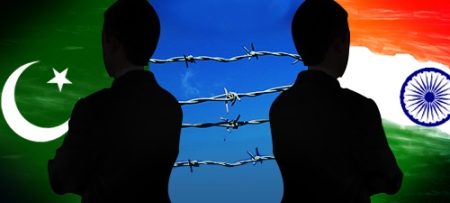

India Uses All Means To Immobilize Pakistan
Attacks on military facilities at Pathankot and Uri were not acts of war. But if India reviews the Indus Water Treaty, it will be an act of war and a hostile act. Obviously, Pakistan is the master of deceit. Not much importance should be placed on what Sartaz Aziz, officially the foreign policy advisor to Pakistani PM Nawaz Sharif, has said as if India had wanted; it could have called the attack on Uri and act of war. But India is showing exemplary restraint.By Sunil Garodia
First publised on 2016-09-28 12:43:11
Pakistan has been rattled by India's decision to review the treaty. It has approached the World Bank in Washington in a measure seen as a pre-emptive move. It wants the World Bank to help it in moving the International Court of Justice. It wants early appointment of judges to a Court of Arbitration.
What Pakistan does not know is that India will not abrogate the treaty. For long now, it has not been using the full quota of water it is permitted to use under the treaty. That has meant that Pakistan was being provided more water than it is entitled. Pakistan is heavily dependent on the water flowing from rivers in India for its agricultural and drinking needs. Now, India will maximize the use of water. By a subtle act of using the full quota it is entitled to, it will ensure less water flows to Pakistan without breaking any of the clauses in the Treaty. There is nothing much a Court of Arbitration can do in such a scenario. Pakistan also knows it cannot do much and that is why it is acting in frustration.
Pakistan has always taken India for granted. It has interpreted Indias friendly gestures as acts of softness and cowardice. It has allowed terror bosses in that country to needle India by saying that Indian bravado is limited to Bollywood films (as JeM chief Masood Azhar said recently). But it does not know that India is mature enough to recognize that outright war cannot be an option at all times. There are other ways in which India can, and is now doing, tighten the screws on an errant Pakistan. The review of the Indus Water Treaty is just one such example.
If Pakistan continues with its trespasses, India will dig out several more such weapons from its diplomatic and trade armoury. Already, it is reviewing whether to downgrade Pakistans current status as the most favoured nation in trade relations. Next, it can move to name Pakistan a terror state. It can downgrade diplomatic relations between the two countries by letting the embassies function with a First Secretary at the helm. It can ask multinational companies working in India not to have any trade relations with Pakistan. It can ask military equipment suppliers to stop supplies to Pakistan if they wish to do business with it. With its financial and consumer spending clout, it will be mostly successful in having its way. These are but some of the options, there are hundreds more. Pakistan needs to be wary of an unfriendly India in many spheres; war is just one of them.
Perhaps, this will impress upon the democratically elected government in Pakistan that there is more to a nation, and its relations with other nations, than just its military might. Successive Pakistani governments, elected through votes of the people, have strangely allowed themselves to be dictated by the countrys military establishment. This proves that real cowardice lies with the Pakistani government. It has never had the courage to crush the involvement of the military establishment and shake the hand of friendship extended by India. Hence, it should now brace itself to bear the consequences.











